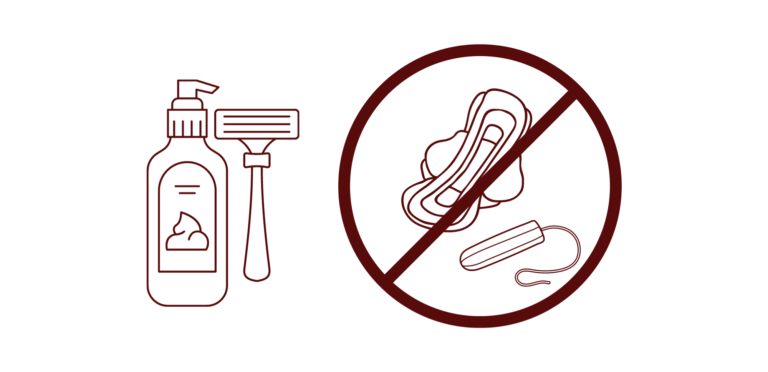WHAT IS PERIOD POVERTY?
And How Does It
Affect Women?
What is Period Poverty? How does it affect Women and Girls? And why does it matter? Period Poverty can be explained as the lack of access to menstrual hygiene products, social stigma, and the lack of knowledge surrounding menstruation. On the other hand, effective menstrual health can be defined as the complete state of physical, mental, and social welfare regarding menstruation. Period Poverty is an issue that is generally swept under the rug while more “urgent” matters such as education and providing clean water get the spotlight. In no way are we saying Period Poverty is a more important issue, but we believe at Phoenicia Finesse that Period Poverty is just as important and here’s why.

Globally, an estimated 200 million women struggle with Period Poverty. Specifically in Lebanon an estimated 3,135,552 women deal with Period Poverty, this is roughly ¾ of the female population of Lebanon. These numbers are staggering, so how does the lack of sanitary products,social stigmas, and the lack of knowledge affect the 3,135,552 women dealing with Period Poverty in Lebanon?

A recent study by Fe-Male and Plan International found that in order to cope with the lack of sanitary products, 41.78% of women reported overusing their sanitary products and 17.11% resorted to using less sanitary products like cut pieces of cloth, newspaper, diapers, and tissue. Can you imagine the infections and rashes you would get because you have to wear your pad 2x as long or have to use cut pieces of old cloth? This is exactly what is happening with women who are not provided with adequate sanitary products. An estimated 35.9% of women struggling with Period Poverty reported that they experienced an increase in skin and genital infections from resorting to makeshift and sub-optima methods of dealing with their periods. Some of the most common infections reported were Urinary Tract Infections, Vulgar Dermatitis, Yeast Infections, and Bacterial Vaginosis.
Another major issue with using sanitary product alternatives like cut pieces of cloth or diapers, is they often leak. This is extremely stressful for most women who choose to trap themselves indoors rather than leaving their homes during menstruation. A recent study highlighted that 20% of female’s reported missing at least 1 or more school days each month due to not being able to control their bleeding. This becomes a real issue for women because it decreases their productivity, causing them to miss vital work and school days.
The social stigma surrounding periods and menstrual health creates a hush hush environment that does not allow healthy conversation about this issue. Most girls and women only learn about their periods and how their bodies work from their mother, who learned it from her mother and so on. Most women are extremely uneducated about periods and their sexual health only exacerbating the Period Poverty crisis. Because of this there are lots of common misconceptions and myths surrounding periods such as, a woman should not shower during her period, tampons strip girls of their virginity, and cramps are a sign that a woman has acted dishonorably during the month following her period.

The social stigmas reach farther than just common myths and misconceptions about Periods. For instance during the economic crisis in Lebanon the government has subsidized men’s shaving cream and razor blades, but not women’s sanitary health products. This is one example of many showing the “patriarchal society” of Lebanon.
These factors create an extremely stressful burden for women who struggle with Period Poverty. It’s a women’s right to have adequate options to be and stay clean during her menstrual cycle. Without proper sanitary products and education a woman will be at a high risk for infections and psychological stress.

The reason why we believe that Period Poverty is such a critical issue is because it’s about Women’s Rights. Without adequate sanitary products a woman cannot stay clean and has limited productivity. It’s every woman’s right to feel dignified at ALL times, not just when she is not menstruating. Not having the proper tools and knowledge to cope with her period keeps her from reaching her fullest potential. Fighting Period Poverty is also about fighting the social stigma around periods and that women’s needs are less than that of a mans. Phoenicia Finesse believes that women’s rights are as equally important as that of a man, that is why we are fighting for women’s rights one reusable sanitary kit at a time.
